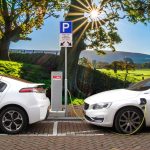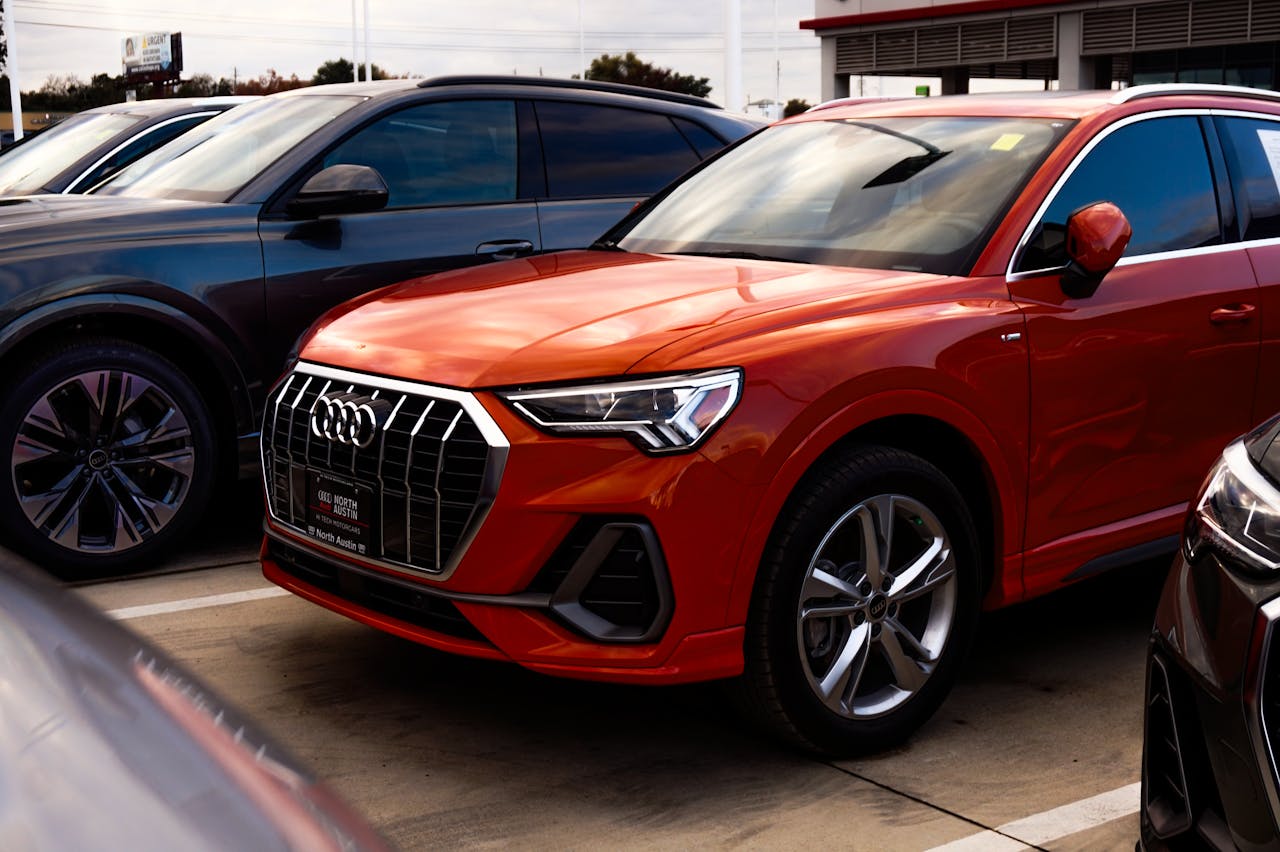In the past few years, electric vehicles have been gaining popularity. With advances in technology and an increase in concern for the environment, more and more people are making the switch to electric cars. If you’re considering making the switch, this blog post is for you. We’ll cover the benefits and drawbacks of electric cars, how they work, and the different types that are available. We’ll also compare electric and gasoline-powered cars, and answer some frequently asked questions about electric vehicles. By the end of this post, you should have a good understanding of electric cars and whether or not they’re right for you.
The Benefits Of Electric Vehicles
Electric vehicles have a lot of benefits that make them a good choice for drivers. For example, electric vehicles are cheaper to operate than gasoline vehicles. This is because you only need to charge the battery once per month, rather than every time you fill up your car with gas. Additionally, electric vehicles emit lower levels of noise pollution than gasoline cars. This is because they don’t require any engine parts that produce noise. Electric vehicles also have the potential to reduce dependence on foreign oil, as they can be powered by renewable energy sources such as solar and wind power.
Electric vehicles have a number of other benefits that make them an excellent choice for drivers. For example, they are more crash resistant than gasoline cars. This is because electric cars don’t require any engine parts that can potentially cause accidents. Additionally, electric vehicles have a longer range than gasoline cars. This is because their batteries can hold a greater amount of energy, which means they can travel further before needing to be refueled. In fact, some experts believe that electric vehicles could eventually replace all gas-powered vehicles on the road!
There are a few drawbacks to consider when choosing an electric vehicle, however. First and foremost, these vehicles are not as fuel efficient as gasoline cars. This is because their batteries take longer to charge up than gasoline engines do. Secondly, electric Vehicles aren’t as practical in cold weather conditions because their batteries tend to freeze over wintertime. Thirdly, they don’t work in every environment – for example, they may not be able to drive through tunnels or on snow and ice roads.
The Drawbacks Of Electric Cars
Electric cars have been touted as the future of transportation, but there are some drawbacks that should be taken into account. In particular, electric cars have a limited range and high initial cost. Furthermore, they require time to charge, which can be a limiting factor in certain situations.
While these limitations may be problematic for some people, they could ultimately prove to be advantages for others. For example, those who live in densely populated areas or who commute long distances would likely find it difficult to use an electric car on a regular basis. On the other hand, those who only need to travel short distances or who don’t care about the environment might find them more appealing.
Overall, electric cars have their benefits and drawbacks just like any other type of vehicle. It’s important to weigh all of the factors before making a decision about whether or not to buy one.
Despite these drawbacks, electric cars are gaining traction in the market. This is likely due to their environmental benefits and the fact that they’re relatively affordable compared to other types of vehicles. In addition, some companies are working on developing more efficient batteries that could make electric car range even longer. Ultimately, the future of transportation may lie in hybrids or all-electric cars, but there’s no telling which direction things will take.
How Electric Cars Work
Electric cars work in a very similar way to traditional gasoline cars. The engine is still located in the car, but instead of using gasoline to power it, an electric motor powers the car. This difference is what makes electric cars so exciting—they have many benefits that make them a much better choice for both the environment and your wallet.
The biggest benefit of electric cars is that they are incredibly environmentally friendly. Gasoline engines produce pollution, both during production and when driving. Electric motors don’t produce any pollutants at all! In fact, electric cars even have some advantages over gas-powered vehicles when it comes to CO2 emissions—an electric car produces zero emissions while being driven, whereas a gasoline vehicle produces CO2 while being produced (this includes mining and refining).
Another big advantage of electric cars is their price tag. Even if you add in the cost of batteries and charging infrastructure, an electric car usually costs less than a comparable gas-powered vehicle. Plus, there are dozens of different types of electric cars on the market now, so there’s always one that’s perfect for you.
If you’re ready to switch to an electrically powered lifestyle, check out our selection of electric cars today!
The Different Types Of Electric Cars
There are a number of different types of electric cars on the market today. This article will cover the basics of each type and how they differ.
Battery Electric Vehicles (BEVs) The oldest type of electric car is the battery electric vehicle. These cars use batteries to power their motors. BEVs are popular in Europe due to their low emissions and are starting to become more popular in the United States as well. The biggest downside to BEVs is that they tend not to be very efficient and can take longer to charge than other types of electric cars.
Plugin Hybrid Electric Vehicles (PHEVs) PHEVs combine the benefits of a gasoline engine with those of an electric motor. This allows them to have some advantages over pure EV models, such as better fuel economy and greater torque capability. However, PHEVs also have some drawbacks; for example, they generally need more space than EVs do and they typically cost more than traditional gasoline-powered vehicles do.
Fuel Cell Electric Vehicles (FCEVs) FCEVs use a combination of electricity from batteries and an onboard fuel cell system to produce power. This makes them unique among all types of electric cars; no combustion takes place inside the car itself, meaning that FCEVs have zero tailpipe emissions. However, FCEVs are still relatively new on the market and there are currently only a few models available commercially.
Extended Range Electric Vehicles (EREVs) EREV refers to any model that has a range beyond what is offered by regular ICE vehicles – which means gasoline or diesel-powered passenger vehicles with ranges between 100 and 300 miles. So far, only two models have been released commercially – one by Tesla Motors Inc., called the Model S P100D Ludicrous mode edition, and another by Toyota Motor Corp called the Mirai. Both models offer ranges up to 500 miles on a single charge. EREV technology has many potential applications beyond just transportation – for example, it could be used in trucking or agriculture where long distances must be traveled without stopping for fuel.
Comparing Electric And Gasoline Powered Cars
When it comes to cars, there are a few things that always come into consideration. Cost of ownership, emissions, and acceleration are all important factors. In this section, we will be comparing the cost of electric and gasoline powered cars.
Electric cars don’t produce emissions. This means that they have zero impact on the environment. Additionally, electric cars are quieter than gasoline cars. They also have faster acceleration than gasoline cars. So, if you’re looking for a car that is environmentally friendly and has great acceleration, an electric car would be a good choice.
However, electric cars have their own set of issues. They are expensive to buy and maintain. Additionally, they can be difficult to charge. If you’re looking for a car that will be reliable and affordable, a gasoline powered car would be better suited for you.
FAQs About Electric Vehicles
There are many benefits to owning an electric vehicle, including the fact that they’re more environmentally friendly. An electric car has a much longer range than a gas-powered car, and can be charged up in just a few hours using solar or wind power.
One of the most common questions about electric vehicles is how they’re different from gas cars. For starters, electric cars don’t require any maintenance or gasoline; you simply charge them up like your smartphone. Additionally, electric vehicles emit zero emissions when driving, which makes them good for the environment.
There are many types of electric cars on the market today – so whether you’re looking for something practical like the Tesla Model S, or something luxurious like the Jaguar I-Pace – there’s sure to be an option that fits your needs. So if you’re considering switching to an electric vehicle, definitely check out our FAQs page for more information!








